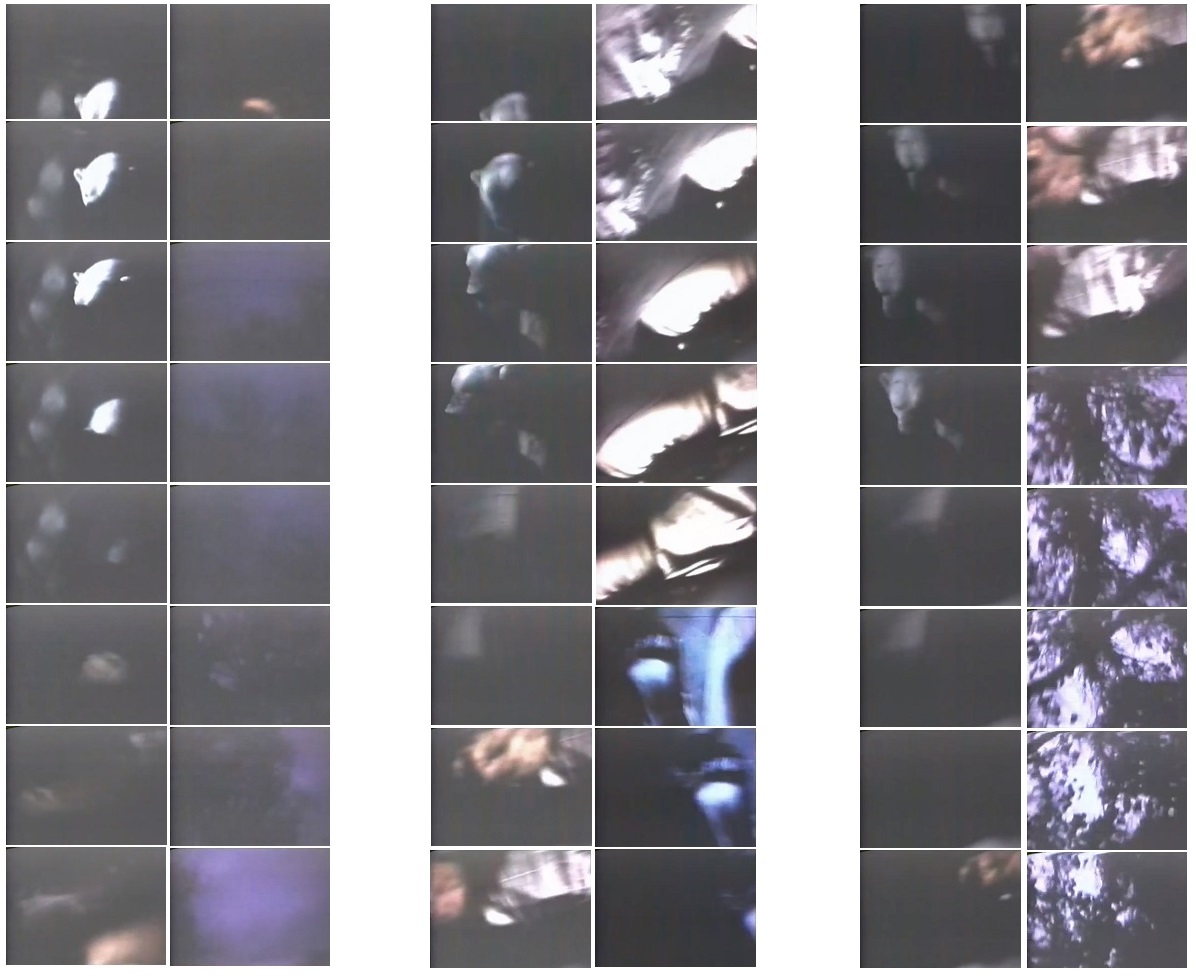
"BECOMING THE MORNING": CINEMATIC ILLUSIONISM AND STAN BRAKHAGE'S PLASTIC MONTAGE
My project aims to study the theory and cinema of Stan Brakhage, specifically in his deployment of plastic montage, an editing technique that effaces the splice between photographic images during the course of projection by merging motion in one shot with that of the next in order to create the percept of a unified field of movement. In particular, I examine his 1958 film Anticipation of the Night in order to understand the processes by which plastic cutting produces an illusion of movement. My goal is to challenge Brakhage's positioning vis-à-vis cinematic illusionism by introducing a definition of illusion informed by research into motion perception found in the literature of visual neuroscience, and then cross-examining this with Gilles Deleuze’s theories on “becoming” and movement-image montage. This thesis will attempt to prove that the illusion produced in Brakhage’s plastic montage is an intrinsic effect generated by the normative processes of motion perception in the early stages of the visual system, thus forgoing any reliance on higher order cognition, which might otherwise explain cinematic illusionism. The consequence that this argument has for understanding Brakhage’s relationship with the discourse of cinematic illusionism subverts the understanding of film as merely the rapid presentation of still photographic images, and instead requires a reformulation of perceiving the moving image as an extraction of motion energy. At its core is a translation of film theory through a range of disciplinary fields which otherwise have no immediate claims in the concerns of cinema studies, from perceptual psychology and neuroscience to the fields of ontology and metaphysical philosophy. It is my hope that this mode of methodological innovativeness might clear space for reconciling biases in scientific and humanist traditions in order to arrive at a unified body of knowledge, which may consider the moving image with an array of theoretical morphologies and from a multiplicity of perspectives.
Sector A: Philosophy & Science of Seeing
Meta Mazaj (CINE) | Alan Stocker (PSYC)

 Visual Studies
Visual Studies